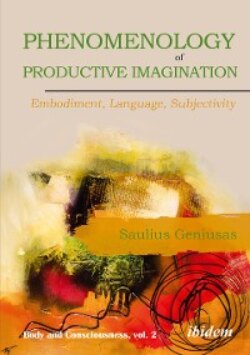Читать книгу Phenomenology of Productive Imagination: Embodiment, Language, Subjectivity - Saulius Geniusas - Страница 7
На сайте Литреса книга снята с продажи.
Methodological Considerations
ОглавлениеWhat is productive imagination? It is not only exceptionally difficult to answer this question; it is not even clear where to look for an answer. In the history of philosophy, it is not uncommon to use this term without defining it clearly, and if we look closer into its implicit meanings, we soon recognize that it has often been employed in a large variety of ways, which not only complement but also conflict with each other. Looking at the history of this concept, one might wonder: to what degree is this concept transcendental and to what degree empirical? To what degree can one qualify its function in terms of creativity (as with Baumgarten and Wolff), or reconciliation (as with Kant, for whom it is meant to reconcile the antagonism between understanding and sensibility), or in terms of origination (as with Heidegger, who equates its meaning with that of original temporalization)? So also, is productive imagination grounded in poetic language (as the Romantics and, subsequently, Ricœur forcefully maintained)? Or is it rooted in deeper sources of human and, more broadly, animal existence (as argued by some contemporary phenomenologists)? Should productive imagination be understood as productive phantasy (as, among others, Dilthey, Scheler and Ricœur maintained)? Or is it a technical term meant to resolve a technical problem in transcendental philosophy, namely, to establish unity (Ein-Bildung) on the grounds of a more original disharmony and thereby delimit the domain of phenomenality (as Kant maintained)? Last but not least, does imagination have its seat in consciousness or in the body? The absence of straightforward answers to these questions clearly indicates that the concept of productive imagination is heavily overdetermined. In light of its diverse and contradictory qualifications, it appears senseless to ask straightforwardly – what is productive imagination? – for clearly, the answer to this question will have to rely on the same standpoint from within which one has engaged it. Before asking – what is productive imagination? – we need to confront the methodological issue of where we are to search for an answer to this question.
When the question is formulated in this way, we find ourselves at a crossroads, and in principle, there are two paths we can take. On the one hand, we can hold the view that the concept of productive imagination was defined by Kant, and that, therefore, when we use this notion, we have to use it in the Kantian sense; otherwise, we simply do not know what we are talking about. On the other hand, we can also maintain that nobody owns philosophical concepts, not even the thinkers who coined them or who drew out their philosophical significance. If the latter is the case, the meaning of the concept of productive imagination cannot be reduced to how it has been employed in any particular philosophical framework. Reflection on the meaning of this concept would call for historical sensitivity, and the meaning of this concept, no matter how broad and fluid it might be, would have to be derived from the multifaceted ways in which the concept has been employed through these various philosophical frameworks.
